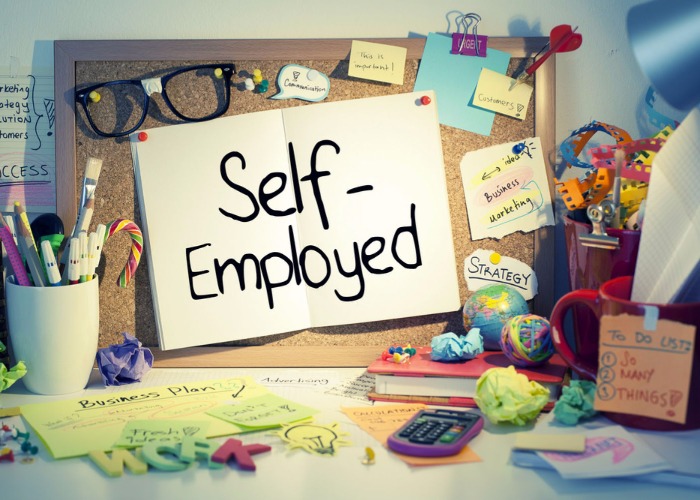Going self-employed: lessons I've learned about tax, pay, budgeting and more

Almost 12 months after going self-employed, John Fitzsimons reflects on what he has learned about tax returns, setting a budget and not being paid on time.
The number of people who work on a self-employed basis has increased significantly in recent years.
According to analysis by Direct Line for Business, the last decade has seen the number of self-employed workers jump from 3.8 million to 4.7 million, an increase of nearly a quarter. And in the last year alone, around 174,000 have waved goodbye to life as an employee to go it alone – the equivalent of around 478 a day.
Almost a year ago I decided to do the same, setting myself up as a freelance writer and pen-for-hire. It’s been an eye-opening experience, and I’ve learned plenty of lessons along the way which apply to anyone who is going self-employed, no matter what industry.
Set up a separate savings account for your tax bill
I have heard enough horror stories about people seemingly being surprised at the prospect of having to pay a tax bill that I knew I wanted to avoid that.
One of the first things I did upon going self-employed was to open a separate savings account just for my tax bill. As soon as I get paid by any client, I move around 40% of that payment straight into the tax account. I then do not touch that money, under any circumstances.
That way I know that my tax bill should be covered, and I may even have a few quid in there left over as a sort of homemade tax rebate.
Don’t panic over the peaks and troughs
Early on, I came up with a plan. I wanted to be able to take two months off to spend with my family, so worked out how much I would need to bring in on average for ten months in order to cover that. It gives me a nice target to work towards on those occasions when the ‘to do’ list is looking a little barren.
The trouble is that work is not always regular – there are good months and not-so-good months. At times I have caught myself panicking because my spreadsheet for the month looks a bit thin, completely ignoring the fact that for the last three months I have easily exceeded my target and that I am not going to end up taking anything close to two months off.
Keeping the panicking to a minimum is definitely something I’ll be focusing on more in year two.
Don’t leave accounting to the last minute
One of my closest friends is an accountant, so I have roped him in to help with my first tax return. Every month I have been keeping a spreadsheet filled in with exactly what money has come in, and what business expenses have occurred.

He says that this isn’t as typical as I would have expected. Lots of people leave it until December before getting in a mad panic and then having to go through all of their banking statements to work out what came in and when so that they could get their tax return in shape.
Doing it as you go seems a much lower stress option to me.
Flexibility isn’t always a good thing
One of the big selling points of being self-employed to me was being able to play a more active role with my two small children, helping with the school run or covering medical appointments if my wife is at work.
The lovely thing about being a writer is that there’s nothing to stop me working in the evening if I have to take time out of the ‘working day’ to cover those responsibilities.
That can be a double-edged sword though. Without a clear line between when work ends and when personal time begins, you may find yourself working far more hours than you really need to, or at least failing to switch off from work. I have taken to turning off email alerts on my phone at weekends or when taking time off.
Don’t rely on being paid on time
There can be wildly differing timescales when it comes to getting paid. Some have paid me on the very same day that I’ve sent in my invoice. Others have dawdled for months, stringing me along with a variety of increasingly bizarre excuses.
As a result, building a safety net to cover key bills for the next couple of months is essential, so that late payments are merely mildly irritating rather than potentially ruinous.
Budgeting itself is a much-changed beast when your income is stretched out so much over the month, rather than arriving in a single payday, so being a bit more relaxed about how wildly different your bank balance can look from day to day is an important skill that I have still not quite mastered.
Read more:
How to make money as an Uber driver
Comments
Be the first to comment
Do you want to comment on this article? You need to be signed in for this feature